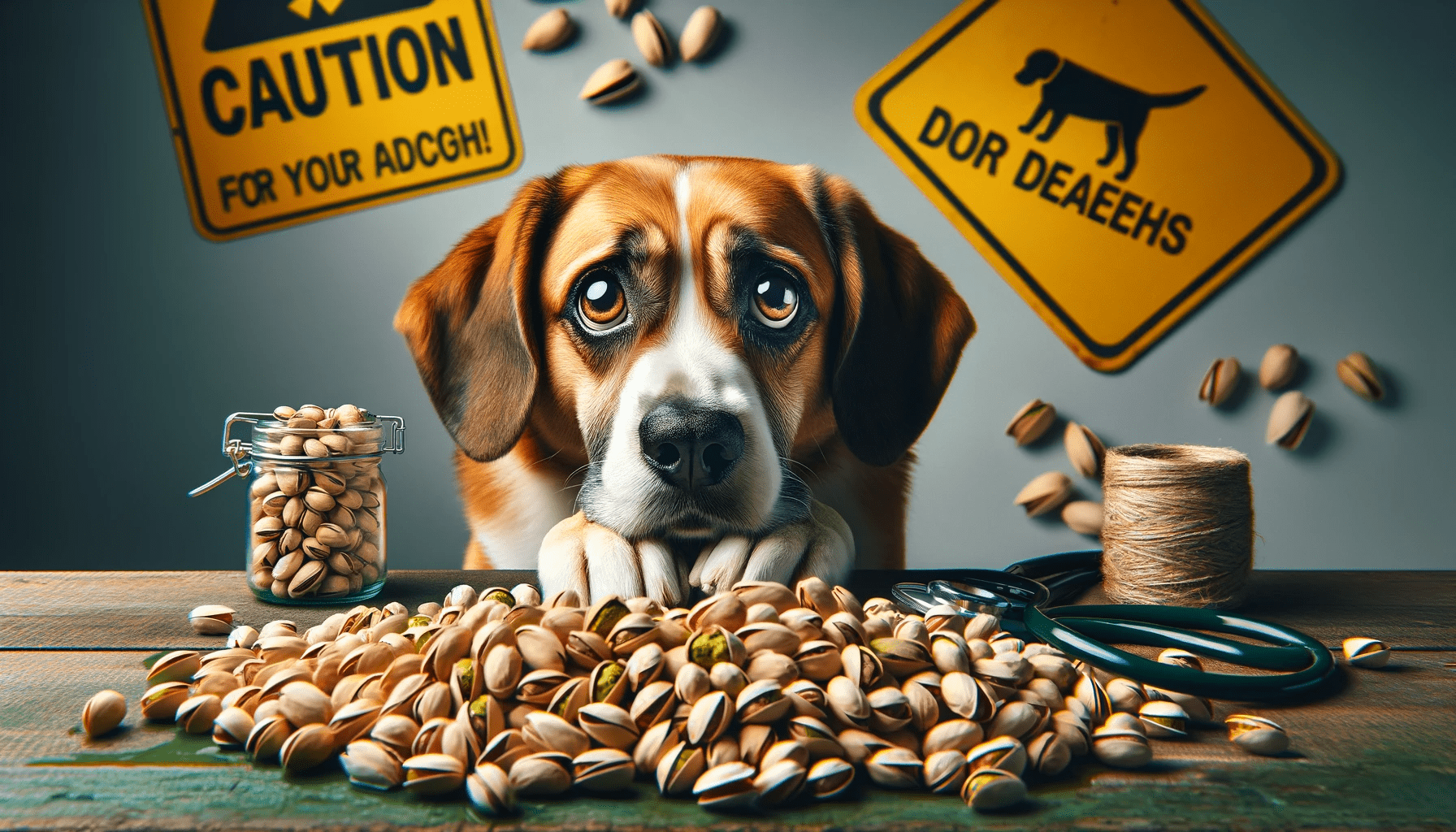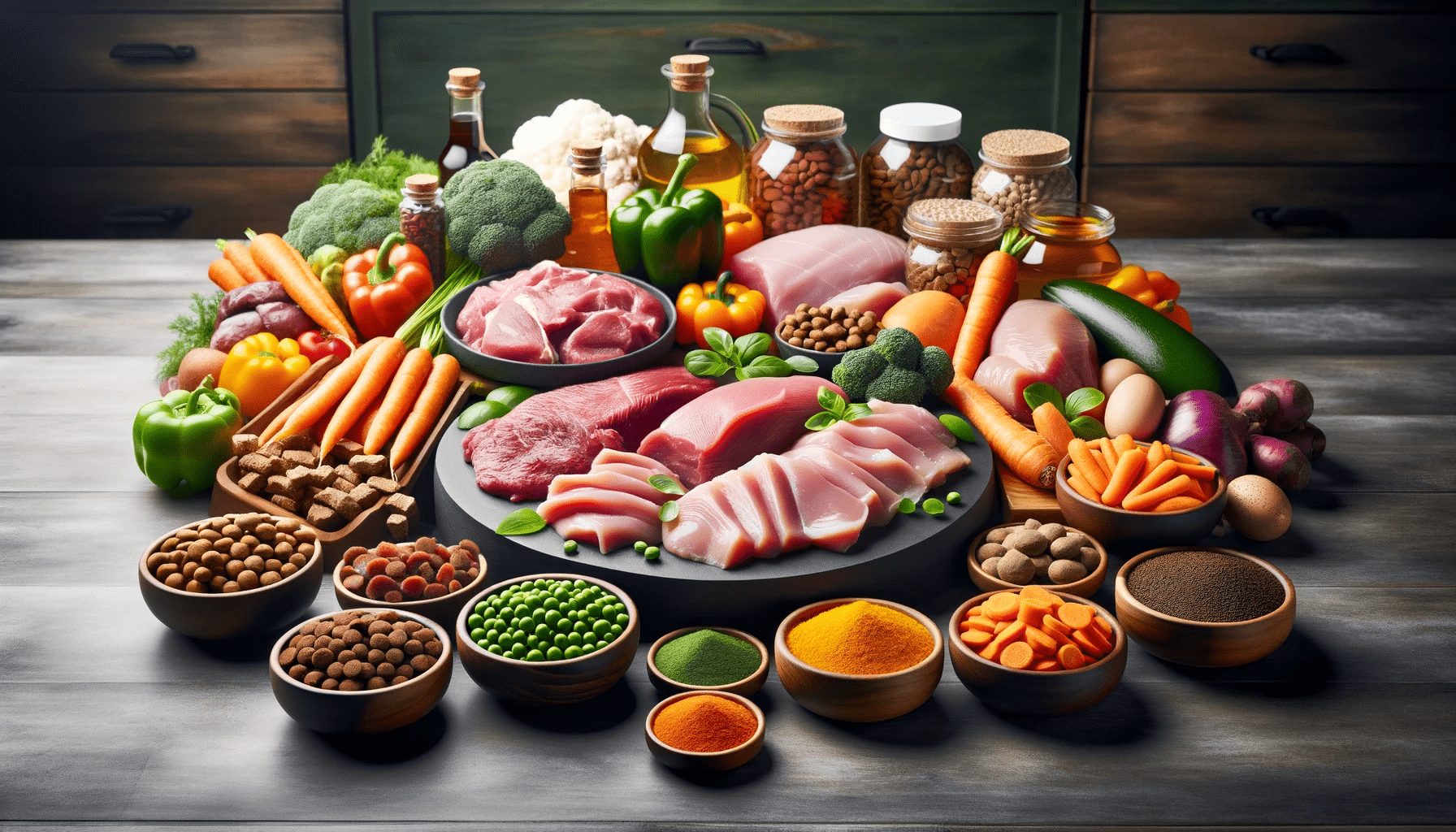Discover the key to optimal dog nutrition by unlocking the power of protein.
In this proven guide, you'll learn the importance of protein in your canine companion's diet and how it contributes to their overall health.
Find out which protein sources are best for dogs and the recommended intake to keep them thriving.
Unleash the benefits of protein, from muscle development to a shiny coat.
Join us as we delve into the world of dog nutrition and uncover the secrets of unleashing the power of protein.
Key Takeaways
- Protein is essential for dogs as it is crucial for growth, repair, and maintenance of tissues, organs, and cells.
- Dogs may require different protein intake based on their age, size, and activity level.
- Both meat and plant-based protein options should be considered, with meat providing high-quality protein and essential nutrients.
- Protein allergies or sensitivities in dogs can be identified through a protein elimination diet, and suitable hypoallergenic alternatives can be chosen.
Importance of Protein in Dog Nutrition
You should always prioritize the importance of protein in your dog's nutrition. Protein is an essential nutrient that plays a crucial role in your dog's overall health and well-being. It's necessary for the growth, repair, and maintenance of tissues, organs, and cells in their body. Without adequate protein in their diet, your dog may experience a range of health issues.
Protein requirements for dogs vary depending on their age, size, and activity level. Puppies and active dogs require more protein compared to adult dogs or those who are less active. It's important to provide your dog with a balanced diet that meets their specific protein needs.
In some cases, protein supplements may be beneficial for dogs. These supplements can help meet their increased protein requirements, especially if they're recovering from an illness or injury. However, it's crucial to consult with your veterinarian before introducing any supplements to your dog's diet, as excessive protein intake can also have negative effects on their health.
To ensure your dog receives the appropriate amount of protein, consider feeding them high-quality dog food that's specifically formulated to meet their nutritional needs. Additionally, incorporating lean sources of protein, such as chicken, fish, or lean meats, can provide them with the necessary nutrients for optimal health.
Protein Sources for Dogs
When it comes to protein sources for dogs, there are a few important points to consider.
First, the debate between meat and plant-based protein is a significant factor to explore.
Second, the quality and digestibility of the protein source play a crucial role in meeting your dog's nutritional needs.
Lastly, protein allergies and sensitivities should be taken into account when selecting the right protein source for your furry friend.
Meat Vs. Plant-Based
When it comes to providing protein sources for your dog, there's a key distinction between meat and plant-based options. Meat, such as chicken, beef, and fish, is a high-quality protein source for dogs due to its complete amino acid profile and high digestibility. It provides essential nutrients like iron, zinc, and vitamin B12.
However, some dogs may have allergies or sensitivities to certain types of meat. In such cases, plant-based protein alternatives can be considered. Plant-based proteins, like soy, peas, and lentils, can provide a nutritional value similar to meat. They're often hypoallergenic and can be a suitable choice for dogs with specific dietary needs.
It's important to consult with your veterinarian to determine the best protein source for your dog's individual requirements.
Quality and Digestibility
To ensure optimal nutrition for your dog, it's crucial to prioritize protein sources that offer high quality and digestibility. This is because the quality and digestibility of protein directly impact its absorption and bioavailability in your dog's body. When choosing protein sources for your furry friend, consider the following:
- Animal-based proteins: These are highly digestible and have superior amino acid profiles, making them more bioavailable for your dog's body. Examples include chicken, turkey, beef, and fish.
- Plant-based proteins: While they can contribute to a dog's protein intake, plant-based proteins are generally less digestible and have lower protein bioavailability compared to animal-based proteins. Examples include soy, beans, and lentils.
- Protein supplements: These can be beneficial for dogs with specific dietary needs or those who require additional protein. However, always consult with your veterinarian before incorporating any supplements into your dog's diet.
Protein Allergies and Sensitivities
If your dog experiences protein allergies or sensitivities, it's important to identify suitable protein sources for their diet. Protein intolerance in dogs can lead to various symptoms such as itching, gastrointestinal upset, and skin issues.
To determine which protein sources are causing the allergies or sensitivities, a protein elimination diet may be necessary. This involves feeding your dog a novel protein source that they haven't been exposed to before, such as venison or duck, for a period of time. If the symptoms improve or disappear, it suggests that the previous protein source was the culprit.
Once you have identified the problematic protein, you can then avoid it in your dog's diet and choose alternative protein sources that are hypoallergenic, such as fish or lamb. Remember to consult with your veterinarian for guidance on implementing a protein elimination diet and choosing suitable protein sources for your dog.
Recommended Protein Intake for Dogs
You should aim to provide your dog with an appropriate amount of protein throughout their diet, both for their overall health and to support their active lifestyle. Protein is an essential nutrient for dogs, as it plays a crucial role in building and repairing tissues, producing enzymes and hormones, and supporting a strong immune system.
The recommended protein intake for dogs can vary depending on their age, size, and activity level. Here are three key factors to consider when determining your dog's protein requirements:
- Life stage: Puppies and growing dogs require more protein than adult dogs to support their rapid growth and development. Senior dogs may also benefit from increased protein intake to maintain muscle mass and support healthy aging.
- Size and activity level: Larger dogs and highly active breeds often have higher protein requirements due to their increased muscle mass and energy expenditure. Smaller dogs and less active breeds may require slightly less protein.
- Health conditions: Dogs with certain health conditions, such as kidney disease or liver problems, may require a modified protein intake. It's important to consult with your veterinarian for specific dietary recommendations tailored to your dog's needs.
Benefits of Protein in Dog Health
Proper protein intake plays a vital role in enhancing the health and well-being of your dog. Protein is essential for weight management as it helps to promote a feeling of fullness, reducing the likelihood of overeating and weight gain. Additionally, protein is crucial for muscle development in dogs. It provides the necessary building blocks for the growth and repair of muscles, ensuring that your dog stays strong and active.
When it comes to weight management, protein is particularly beneficial because it has a higher thermic effect than carbohydrates or fats. This means that it requires more energy to digest and absorb, leading to increased calorie burning. By including adequate protein in your dog's diet, you can help them maintain a healthy weight and prevent obesity-related issues.
Protein is also essential for muscle development in dogs. It contains amino acids, which are the building blocks of proteins and are necessary for the growth and repair of muscle tissue. Adequate protein intake ensures that your dog has the necessary resources to build and maintain strong muscles. This is especially important for active and working dogs, as well as those recovering from injury or surgery.
To ensure your dog receives the benefits of protein for weight management and muscle development, it's important to provide them with a balanced and high-quality diet that includes an appropriate amount of protein. Consult with your veterinarian to determine the right protein intake for your dog based on their age, breed, activity level, and overall health.
Protein Quality and Digestibility for Dogs
When it comes to your dog's nutrition, it's important to consider the quality and digestibility of the protein they consume. Protein absorption and utilization play a crucial role in your dog's overall health and well-being. Here are three key factors to consider when evaluating the protein quality and digestibility for your furry friend:
- Amino Acid Profile: Dogs require a specific balance of essential amino acids in their diet for optimal protein utilization. These building blocks of protein are necessary for various functions in their body, including tissue repair, enzyme production, and immune system support. Look for dog food that provides a complete and balanced amino acid profile to ensure your dog's protein needs are met.
- Digestibility: The digestibility of protein determines how efficiently your dog is able to break down and absorb the nutrients. Higher digestibility means more of the protein is utilized by the body, leading to better overall nutrition. Look for dog food that lists specific protein sources, such as chicken or beef, rather than generic terms like 'meat meal,' as these are more likely to be highly digestible.
- Protein Source: The source of protein also impacts its quality and digestibility. Animal-based proteins, such as chicken, turkey, or fish, are generally more easily digested and utilized by dogs compared to plant-based proteins. Ensure that your dog's diet includes high-quality animal protein sources to support their nutritional needs.
Balancing Protein With Other Nutrients for Dogs
When it comes to balancing protein with other nutrients for your dog's diet, it's important to consider protein digestion efficiency and the optimal protein-to-fat ratio.
Protein digestion efficiency refers to how well your dog's body can break down and absorb the protein from their food. A higher protein digestion efficiency ensures that your dog is getting the maximum benefit from the protein they consume.
Additionally, finding the right balance between protein and fat is crucial as both nutrients play important roles in your dog's overall health and well-being.
Protein and Digestion Efficiency
To optimize your dog's digestion efficiency, it's essential to strike a balance between protein and other vital nutrients. Protein plays a crucial role in your dog's gut health, as it promotes the growth of beneficial bacteria and helps maintain a healthy digestive system. However, excessive protein intake can lead to digestive issues and strain your dog's kidneys.
To ensure optimal digestion, consider the following:
- Protein quality: Choose high-quality protein sources such as lean meats, fish, and eggs. These provide essential amino acids that support digestion and overall health.
- Fiber intake: Include fiber-rich foods like vegetables and whole grains in your dog's diet. Fiber aids in digestion by promoting regular bowel movements and preventing constipation.
- Balanced meals: Combine protein with carbohydrates and healthy fats to provide a well-rounded diet. This helps manage your dog's weight and supports optimal digestion.
Optimal Protein-To-Fat Ratio
Achieving the optimal protein-to-fat ratio is essential for balancing protein with other nutrients in your dog's diet. Dogs have specific protein requirements that need to be met in order to maintain their overall health and wellbeing. Protein is crucial for muscle development, tissue repair, and the production of enzymes and hormones.
It's also important to consider protein absorption when determining the ideal protein-to-fat ratio. Dogs need a sufficient amount of fat in their diet to help facilitate the absorption of protein. Fat provides energy and aids in the absorption of fat-soluble vitamins.
Finding the right balance between protein and fat is key to ensuring that your dog receives the necessary nutrients for optimal health and nutrition.
Frequently Asked Questions
Can Dogs Get Enough Protein From a Vegetarian or Vegan Diet?
Yes, dogs can get enough protein from a vegetarian or vegan diet. Plant-based proteins like soy, lentils, and quinoa can provide the necessary amino acids. However, it's important to ensure balanced nutrition and consult a veterinarian.
Are There Any Health Risks Associated With Feeding Dogs Too Much Protein?
Feeding dogs too much protein can have health risks. Dogs on different diets have different protein requirements. It is important to understand the balance and ensure your dog gets the right amount for their specific needs.
How Does a Dog's Age and Activity Level Affect Their Protein Needs?
Your dog's age and activity level play a crucial role in determining their protein needs. Different breeds and sizes have varying requirements. Senior dogs may require higher protein levels to support their aging muscles.
Can Dogs Develop Allergies to Certain Protein Sources?
Yes, dogs can develop allergies to certain protein sources. It's important to identify and avoid those proteins that cause a reaction. Consult with your veterinarian to determine the best protein sources for your dog's specific needs.
Is It Necessary to Supplement a Dog's Diet With Additional Protein Sources, Such as Protein Powders or Supplements?
Supplementing a dog's diet with additional protein sources, like powders or supplements, has pros and cons. High protein diets can aid muscle development and overall health, but consult a veterinarian for guidance.
Conclusion
In conclusion, protein plays a vital role in dog nutrition, providing essential amino acids for growth, repair, and overall health. Dogs can obtain protein from various sources such as meat, fish, and plant-based options.
It's recommended to provide dogs with an adequate amount of protein based on their size, age, and activity level. Protein not only supports muscle development but also contributes to a strong immune system and healthy skin and coat.
Maintaining a balanced diet that includes the right amount of protein is crucial for optimal canine health.






